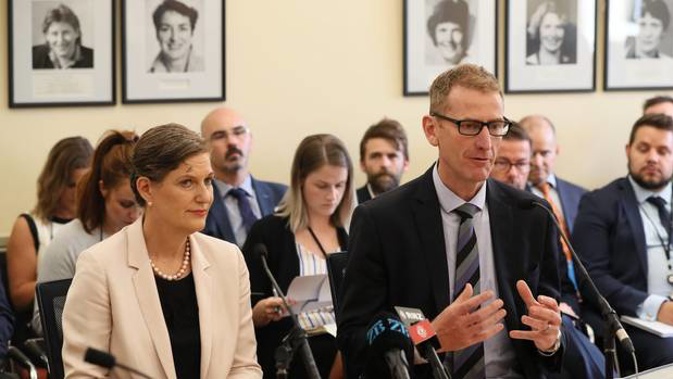
GCSB spy chief Andrew Hampton has given an assurance to MPs on the Intelligence and Security Committee that he was not pressured by Five Eyes intelligence partners in a preliminary decision about Spark's plans for the 5G network - effectively blocking Huawei.
"I would like to assure the committee that in making my decision, at no point was I under direct or indirect pressure from any party.
"My decision was independent from ministers and while we share intelligence with Five Eyes partners, there was no pressure, requests or demands made by partners, either publicly or privately, to ban any vendor."
Hampton was appearing with SIS chief Rebecca Kitteridge to discuss their agencies work in the past year with the committee which includes Prime Minister Jacinda Ardern and National leader Simon Bridges.
Hampton said that towards the end of last year, the GCSB received its first notification relating to 5G technology, which it must then assess from a security perspective under the Telecommunications (Interception Capability and Security (TICSA) Act.
"Following an assessment of the notification using the TICSA framework, Spark has been informed that a significant network security risk was identified.
"The regulatory process is still onging with Spark assessing its options," Hampton said.
Hampton said that the TICSA applied a country and vendor-neutral framework, ensuring a level playing field for all.
Hampton said the relatively new Intelligence and Security Act had made it easier for the bureau to work with the SIS including in such areas as countering foreign interference and violent extremism.
It was also helping the bureau to provide greater support to domestic law enforcement agencies than was previously possible. For example New Zealand was now able to collect intelligence against New Zealanders potentially involved in transnational crime.
He said he was now able to publicly discuss for the first time the role the GCSB played in helping New Zealand Custom.
"through our signals intelligence capabilities, we are supporting NZ Customs to better target transnational crime networks with the aims of disrupting their efforts 'upstream' - before their activities can impact on New Zealand."
He said the new law also provided a strong legal footing for co-operating with Five Eyes partners.
"In the past year the bureau has worked with partners to make valuable contributions on cyber security, transnational crime, and violent extremism."
Take your Radio, Podcasts and Music with you








